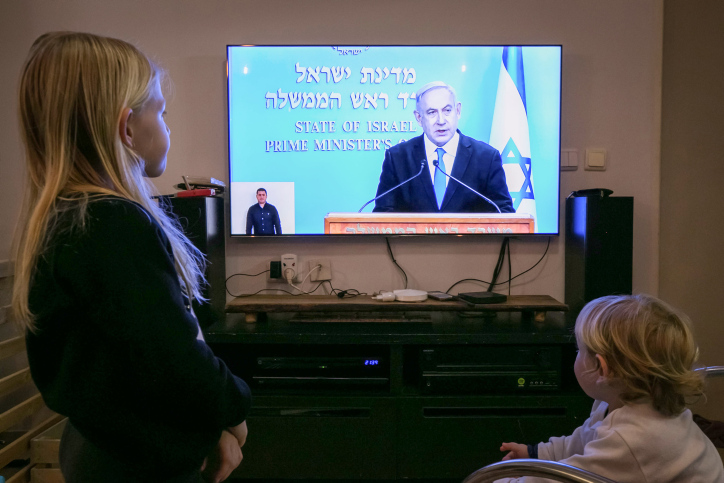Cabinet unanimously approves unprecedented emergency regulations to restrict movement, keep Israelis at home to slow spread of coronavirus.
By Paul Shindman, World Israel News
Israel’s cabinet unanimously approved emergency measures that went into effect Friday, putting the entire country under home lockdown for at least a week to try and stop the spread of the coronavirus.
“In the framework of the regulations activities in the public sphere will be reduced and restricted, restrictions have also been set for commercial and leisure activities for a period of seven days,” an official statement said.
On Thursday night Prime Minister Benjamin Netanyahu announced the drastic moves as coronavirus infections in Israel started to grow exponentially.
“Difficult times require difficult decisions,” a somber Netanyahu said in a nationally televised press conference. “Under these restrictions you, citizens of Israel, are required to stay home. It is no longer a request. It is no longer a recommendation. It is a binding directive that will be enforced by the enforcement authorities.”
“Everyone will remain at home except for workers whose work is permitted under Finance Ministry directives. This step is unprecedented since the foundation of the state. In effect, there has not been such a thing in the past 100 years,” Netanyahu said.
Israelis will be allowed out to buy food, medicine and essential supplies, and limited public transportation is available for those employed in essential jobs to get to work, but otherwise the country is in shutdown.
As of Friday morning the Ministry of Health reported 705 confirmed coronavirus infections in Israel, 10 of them in serious condition. With the number of infected Israelis doubling roughly every three days, experts feared that number could hit 10,000 by the end of March.
Religious activity for the nine million strong population of the Holy Land is also affected, with synagogues, churches and mosques closed to prevent worshipers from infecting each other. Jewish religious law requires at least 10 people to be present for prayer services three times a day and Israel’s health ministry documented several cases of infected people who had attended prayers – forcing all those present into two-week mandatory isolation.
“My entire history is devoted to the opening of synagogues and seminaries rather than to close them, but the danger to life posed by groups of people under the current conditions with the corona virus requires this,” Rabbi Shlomi Riskin, a prominent rabbi from Efrat, wrote to his community. Riskin issued a religious decree that not only closed all of the several dozen synagogues in his town, but also banned prayer groups from being held in private homes and outdoors.
The Palestinian Authority also ordered all churches and mosques closed, including the famous Al Aqsa Mosque in Jerusalem‘s Old City. Palestinian media reported 48 confirmed cases of coronavirus, most of them in the Bethlehem area that has been under quarantine since the first cases were discovered earlier this month.


